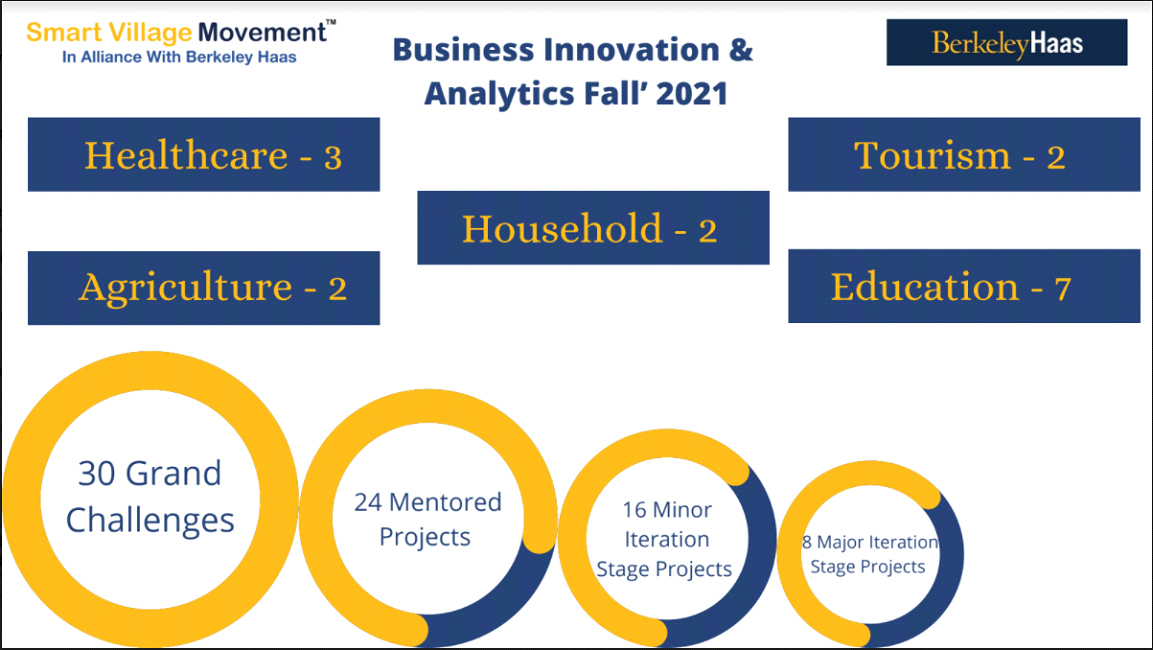One of the driving forces of Smart Village Movement’s alliance with UC Berkeley’s Haas School of Business, Center of Growth Markets(CGM) is the shared responsibility to facilitate sustainable development by integrating indigenous practices with modern technology and business innovation. Berkeley Haas is not just our Knowledge Partner but also plays a key role in leveraging a network of companies and technologies. Unlike many prevailing definitions of a Smart Village, UC Berkeley’s CGM has established a unique proprietary definition that is more about building and empowering people than building infrastructure. This is the guiding principle behind all our sustainable development projects and the underlying vision for UC Berkeley’s student projects for SVM Grand Challenges.
UC Berkeley Student Completed SVM Projects in Business Innovation and Analytics Program
Smart Village Movement, December 15, 2021
Berkeley-Haas supports SVM with world-class resources in research and students who help us co-innovate solutions through resourceful educational programs like Business Innovation and Analytics Program. This particular program helps students build skills in innovation, entrepreneurship, and data science both through lectures and by completing a self-directed project, which involves proposing a solution to and creating a business model based on the Grand Challenges drafted by the ground team of SVM in India. These Grand Challenges focus on real-world problems faced by villagers in rural India, specifically in the State of Meghalaya.

In this course, the students received two weeks of online lectures and ten weeks of mentoring from instructors at the University of California, Berkeley, Smart Village Movement’s leadership and mentors as well as executives from multinational corporations and nonprofit organizations. The program’s scope covers concepts of Open Innovation, Data Analytics, the use of Pyramid Analytics, and the Lean Launchpad Method.
The program this cycle produced 25 business model solutions that will be further assessed for the next 6 months by SVM to determine the projects’ feasibility and scalability. Here are some examples of projects proposed by the students:
- Rural Transport Connectivity – To facilitate easy transport to the rural areas and to bring people living in remote areas closer
- Emergency Services – Enabling round-the-clock emergency care services and integrated support solutions.
- Job-Ready Skills – To ensure every student/job aspirant gets job-ready skills to secure a desirable opportunity.
Click here to know more about the program and visit the platform to learn more about the programs.

